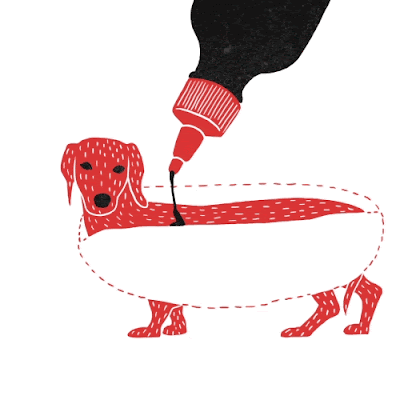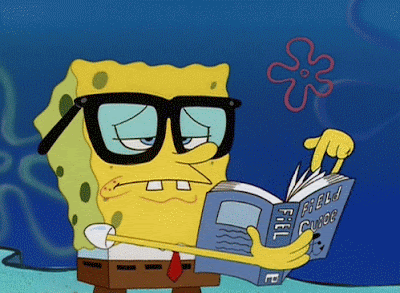NPR的廣播能增強聽力,記得要反覆聽很多遍喔。
 |
| animaiton gif - Giphy |
再等幾天,教練本周的小廣播就要上架了,還有更多有趣的單元會陸續上傳。
今天先來收聽這篇NPR的報導。安慰劑與相關治療的心理效應不可小覷。這篇NPR解釋了the Placebo effect與相關療法的應用。當然也介紹了一個可以炫耀的好字,那就是Oxymoron。想要知道啥是oxymoron可以閱讀之前上傳的專文喔。記得下載聲音檔,隨時享受英文廣播的樂趣喔。
Research Shows Placebos May Have Place In Everyday Treatments
- Placebo effect (拉丁文,意思是我將安慰)
- Nocebo effect (拉丁文,意思是我將傷害)此為病人不相信治療有效,反使病情惡化
LAURA SULLIVAN, HOST:
If you're just joining us, it's WEEKENDS on ALL THINGS CONSIDERED. I'm Laura Sullivan. Doctors have known about the placebo effect 安慰劑效應for centuries. That's when a fake drug假藥 - a sugar pill糖衣錠(無療效), for example - makes sick people feel better. But in Western medicine, placebos have been looked down on被鄙視, by doctors. Now, researchers at some of the top medical schools頂尖醫學院 in the country are proving證實 that placebos could have a place in everyday treatments.
We wanted to find out how, so I spoke with Ted Kaptchuk. He is the authority權威 on the placebo effect and the director of placebo studies at Beth Israel Deaconness Medical Center. Ted, welcome.
TED KAPTCHUK: Thank you for inviting me, Laura.
SULLIVAN: So placebos are essentially fake drugs. These are sugar pills - just something that is not, in any way, supposed to make you better. How do they compare, in your studies, to real drugs?
KAPTCHUK: For a lot of medications, the placebo effect is a big part of what the effect of the medication is. Placebos don't do anything. That's an oxymoron矛盾語(兩個字的意思完全相反所組成的矛盾字眼,如the living dead, dark light)
, to say a placebo does something. But it's what surrounds the placebo that is what's doing things. That's the symbols; the rituals儀式; doctor-patient relationship醫病關係; and the power of imagination, trust, and hope.
For example, if you give powerful drug – reliever止痛劑 - like morphine嗎啡 - and these experiments have been done - and you give it to the patient surreptitiously偷偷的, without them knowing, in an IV, it has a very strong analgesic effect止痛效果. It stops pain. But if you give that same dosage劑量 in an injection that the patient sees going into their arm, it has double the effect.
SULLIVAN: Why does that work? Why are we susceptible容易受到影響的 to that?
KAPTCHUK: Well, there are many ways of answering that "why" question. One way is a psychological 心理的way. We have expectations期待心態; we have previous experience; we have non-conscious awareness無意識的感覺. And we're in a medical environment, and we're used to that environment producing beneficial results. The ritual of medicine activates啟動 particular areas in the brain that actually will reduce pain, or at least reduce the sensations that we have in relation to pain.
SULLIVAN: Is it that the ritual of medicine - sitting in front of a doctor, telling him or her your pain; or going through the process of an appointment, taking a pill - does it make us think we're feeling better, or are we actually getting better?
KAPTCHUK: Well, I don't think it's only thinking. I think there's some evidence that if you expect things to happen, it happens. But I don't think you expect to get better, and that makes you better. I call it the Romeo and Juliet effect羅密歐與茱麗葉效應. We know what's going to happen to Romeo and Juliet. We watch it. But when we watch it for the fourth time, the fifth time, tenth time, we get all excited. We get emotionally involved有情緒上的共鳴. When we're sick, we get emotionally involved. Those rituals, even though they may be drama戲劇性, they affect us more deeply than drama because our real lives are at stake危在旦夕.
SULLIVAN: Hmm. You know, I found your asthma氣喘 study fascinating, because you had this group of people. They were all on placebos, and they were reporting to you that they were feeling better. And you actually went in expecting - when you looked at their lungs - to see that they were getting better. And what you found was that there was really no improvement at all, in their lungs.
KAPTCHUK: Yeah. What we found was that the patients reported the same amount of relief with the fake medicine as they did with the active medicine. And it was a really interesting study, showing that objective pathophysiological measures客觀的病理生理方式 don't seem to be modified更改 by ritual self-appraisal儀式性的自我療癒. (也就自覺狀況好轉,是個人主觀的評估,實際上的生理狀態並未改變)How we experience ourselves is very much affected by the ritual of medicine.
SULLIVAN: Do you think that there's going to be a time where we're going to use placebos on people because they seem to work, in some cases, as well as regular drugs?
KAPTCHUK: I think the bottom line底線 is, we're never allowed to deceive people - give people placebos without them being informed of what we're doing. That's the bottom line. Is it possible to give people a placebo, and tell them it's a placebo; meaning, it's an ethical合乎道德的 thing to do. Will that unleash解開/釋放 changes that will actually improve illness?
We've done two experiments like that. They're small; they're pilot studies實驗性的研究. We're hopeful that maybe this will pan out成功 in the future; that we can actually, instead of putting people on drugs right away, maybe put them on the ritual of medicine, and see if that's enough. So I see there's a place for it, but it's still in infancy初步階段 whether this is really an option選擇 or not.
SULLIVAN: Ted Kaptchuk is a professor of medicine at Harvard Medical School and the director of placebo studies at Beth Israel Deaconness Medical Center. Ted, thank you so much for joining us.











期待教練的新單元~
回覆刪除Hi Unknown,
回覆刪除新單元上傳了喔。